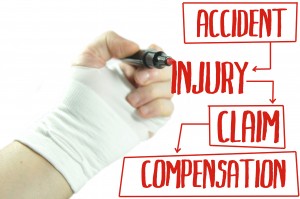Who is liable in insurance claims if the vehicle is stolen?
Lock your car doors. You may be liable to lose more than you think and it could affect your insurance claims.
What’s the worst that could happen when a car door is left unlocked in a driveway or parking lot? Most would assume that their car, or the belongings inside it, could be stolen. The consequences turned out to be much worse in a recent case involving an Ontario garage and dealership . The Supreme Court of Canada looked at the insurance claims and recently ruled that the owner of that garage owed a duty of care to a minor who was injured in one of their unlocked vehicles after it was stolen.
On a summer evening in 2006, two teenagers walked around their hometown with the intention of stealing from unlocked cars before finding themselves at Rankin’s Garage & Sales — a business that serviced and sold cars and trucks. The garage property was not secured, and the two found an unlocked Toyota Camry with keys left in the ashtray. Despite not having a driver’s license or any driving experience, one teen got behind the wheel and set off for a joyride with the plaintiff as his passenger. The vehicle crashed, and the plaintiff suffered a catastrophic brain injury.
Difference levels of responsibility in insurance claims
The victim sued and the Trial Judge determined that the garage owed a duty of care to the minor plaintiff and a jury apportioned 37% responsibility to the garage for the teen’s injuries. The primary issue on appeal was whether the Trial Judge had erred in finding that the garage owed a duty of care to the plaintiff in the circumstances, which included his participation in the theft. The Garage appealed.
The Court of Appeal decides on insurance claims
The Court of Appeal found it reasonably foreseeable in the circumstances that minors might steal an unlocked car with keys in it and injure themselves doing so. The basis for this conclusion was that Rankin’s Garage was easily accessible, there were no security measures to keep people off the property after hours, cars were left unlocked with keys in them, and there was evidence of a history of theft in the area and from the garage itself.
The Court of Appeal concluded that the garage should have had minors in mind when considering security measures, and that the care and control of many vehicles imposed a responsibility of securing them against minors. Securing vehicles by locking them and keeping keys secure was the garage’s responsibility.
We all know that there are possible dangers in leaving our vehicles unlocked, but we don’t often think beyond the obvious. A case like this should be a reminder that cars, machinery, and tools can cause harm to those who are not experienced in using them safely. Owners of these items have a responsibility to make sure that they do not fall into the wrong hands.
A business that leaves a car unlocked with the keys inside will not necessarily be responsible when someone is injured after the car is stolen, the Supreme Court has ruled. The business will only be responsible where it should have known both that the car could be stolen, and that someone could be injured due to it being driven unsafely.


